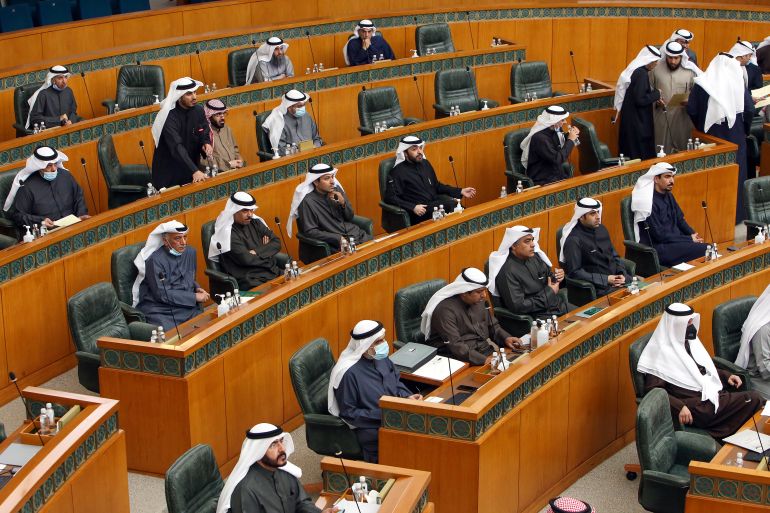Kuwait heads to polls in second legislative election in two years
Some 305 candidates, including 22 women, are competing for 50 seats in parliament in five constituencies.

Kuwaitis are voting in what observers are describing as the country’s most inclusive elections in 10 years, with some opposition groups ending a boycott after the Gulf country’s royal rulers pledged not to interfere with parliament.
Thursday’s polls are the sixth in 10 years, reflecting the repeated political crises that have gripped Kuwait.
Keep reading
list of 3 itemsGulf nations demand Netflix remove ‘offensive’ content
Kuwaiti foreign minister visits Lebanon to mend Gulf standoff
Kuwait’s National Assembly is the freest in the Arab Gulf and consists of 50 elected members, as well as a cabinet appointed by the country’s leader.
The elections come after Crown Prince Sheikh Meshal Al-Ahmad Al-Jaber Al-Sabah announced the dissolution of parliament in June, following disputes between legislators and the government, the fourth to be named in two years.
Kuwait, which borders Iraq, Saudi Arabia and Iran, and is one of the world’s biggest oil exporters, has held 18 elections since 1962.
But when he dissolved parliament, Sheikh Meshal promised there would be no interference by authorities in the election or the new parliament.
“We will not interfere in the people’s choices for their representatives, nor will we interfere with the choices of the next National Assembly in choosing its speaker or its committees,” the crown prince said.
“Parliament will be the master of its decisions, and we will not be supporting one faction at the expense of another. We will stand at the same distance from everyone.”
Political analyst Fahd al-Habini believes the majority of candidates running are dependent on their social standing and reputation, and not their political agendas and programmes.
“The social status is the basis for the beginning of a candidate’s career,” he told Al Jazeera. “The issue of running on different political agendas is not essential, as the environment from which electoral work proceeds from depends on the influence of the candidates and who they are.”
Vote buying monitored
Thursday’s vote also comes after the country’s emir issued an amnesty last year for political opponents who had been tried on various charges.
Opposition figures have stayed out of elections during the past 10 years, accusing executive authorities of meddling in the workings of parliament.
Some 305 candidates, including 22 women, are competing for 50 seats in five constituencies. Parliament has been all male since the only female politician lost her seat in December 2020.
Women represent 51.2 percent of the 795,920 voters. About 70 percent of the population of about 4.2 million is made up of expatriates.
All contenders are running as individuals because political parties are banned in Kuwait.
While the last elections were affected by anti-coronavirus measures, this time candidates have been able to open electoral offices and hold live hustings. Security services have stepped up their monitoring of vote buying.
The election results are expected to be announced on Friday.
Kuwait was the first country in the Gulf region to establish an elected parliament in 1963.
Several opposition MPs had been on strike in protest at delays to parliamentary sessions and the failure to form a new government. A core source of friction is MPs’ demand for ministers from the royal family to be held accountable for corruption.